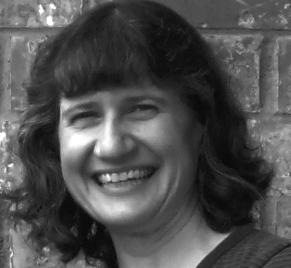Getting To Calvin, And How You Can Help
Christopher Fisher
Your Typical Anecdotal Opening
This past December I discovered that, as with many high-tech toys and devices, I despise GPS navigation systems.
The university was closed for winter break and I didn’t have to teach again until mid-January, so Jen and I decided to take a short anniversary trip—our thirteenth. We chose Richmond, Virginia, for the Edgar Allan Poe museum, the many antique and book shops in Carytown, and because it’s close to Jen’s parents (in other words, free babysitting for our four kids). The in-laws’ Honda is much too small to carry our abundant progeny, so it seemed only natural that we would swap vehicles for the weekend. My father-in-law, being the considerate man that he is, even programmed his GPS to direct us to our hotel. “Just follow the directions,” he said. “You can’t miss it,” he said.
But after thirteen years, I guess he doesn’t know his son-in-law as well as he thinks. Coming into the city, I followed the sweetly feminine computerized voice, at the same time keeping a careful eye on the car’s odometer.
“Turn left 3.2 miles.”
Okay.
“Turn left onto I-95 North.”
Done.
“Exit point one miles.”
No problem.
“Recalculating. Recalculating.”
Wait a second. Didn’t she say---
“Recalculating.”
One wrong turn, and we were lost in downtown Richmond. And not the “good” side of town, either.
Now I’d looked at a map before we began the trip so, after half an hour of turns and double backs, we finally stumbled on Cary Street, and I had a vague idea where we were. I turned off the GPS and headed west. Ten minutes later we arrived at our destination, exhausted and completely stressed. All because I trusted that wicked computer wench.
Just thirty seconds with a map, and none of this would have happened. Thirty seconds with a map, and we’d have already been checked into our room and opening a bottle of wine.
The Real Point
All of the above is just to point out that I'm the type of person who likes—no, needs—to plan ahead. To me, the phrase “fly by the seat of your pants” has never sounded remotely fun or adventurous but…well, quite painful. I won’t even sit down to write the first sentence of a book or a short story until I’ve worked out the ending in my head. I may not know every detail of the journey (whether literal or narrative), but I know I’m wasting my time if I don’t at least know where I’m going before I start trying to get there. So though it is not until this coming April, the staff at Relief has been for the past six months making preparations for quite a showing at the Calvin Festival of Faith and Writing. And these preparations are really starting to speed up.
This year we will have a booth in the exhibition hall to sell recent and back issues of the journal. With some help from Midnight Diner Editor, Michelle Pendergrass, and authors Michael Snyder and J. Mark Bertrand, we’ll also be presenting a panel discussion during the concurrent sessions. There will be lots of games and giveaways and a circus monkey performing Glenn Beck impersonations. (Okay, I lied about that last part, but if we find one, we’ll make it happen.)
What Does This Have To Do With You?
And yet, all our careful planning aside, there are three specific things we need to get to Calvin. First, as I’ve learned since taking the Editor’s chair, what Relief and probably any journal needs more than anything is people who are willing to actually do things. In this case, that would be little things like helping to man a book table, or passing out flyers, or just spreading the word about the journal. So if you’re going to the Calvin Festival and you’re interested in being a Relief volunteer, please contact me at chris@reliefjournal.com.
Second—and this one is tough for me to even bring up—the Calvin Festival is, essentially, a book fair, so Relief will obviously need books to sell. And books cost money. The last year has been hard on businesses nationwide. Much more so for non-profit Christian literary journals, many of which have folded since the last Calvin Festival in 2008. Relief is fortunate to even still be around, and more fortunate to have completely sold out of Issues 3.1 and 3.2. But that good luck leaves us now with no inventory of our most recent books, and Issue 4.1 may not be complete by April. In short, we need to print another run of 3.2 before Calvin, and we’ll have to get on that very soon. If you are interested in helping to support Relief by donating to put a few books on our table, email me at the address above for details. Your donation will go much further than you may realize, and we will welcome and appreciate any gift, no matter how small.
Third and final, I’d like to ask you to pray for the Relief staff over the next couple months. We are volunteers ourselves, most of us working full-time jobs and then some, and then putting many extra hours of our precious little free time into this journal simply because we love it and the authors we publish. Prepping for a conference like this is a big undertaking, and it only heaps more onto a very tall mountain of things to be done. So please mention us to the Father when you can.










 Thanks to Michelle and the great people over at
Thanks to Michelle and the great people over at 

